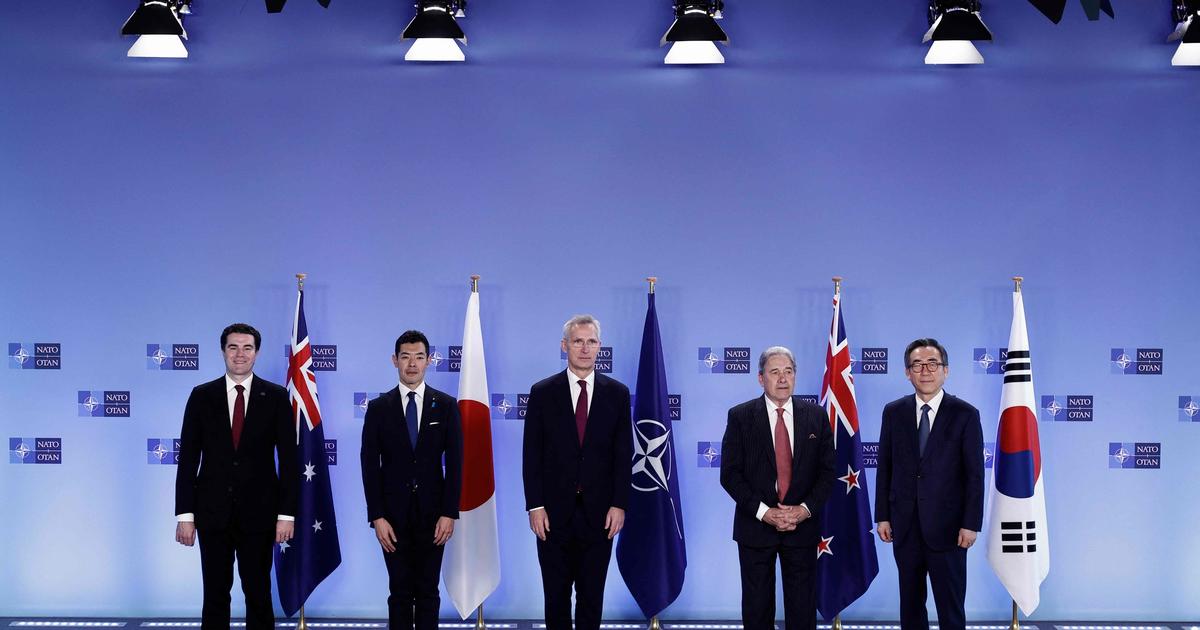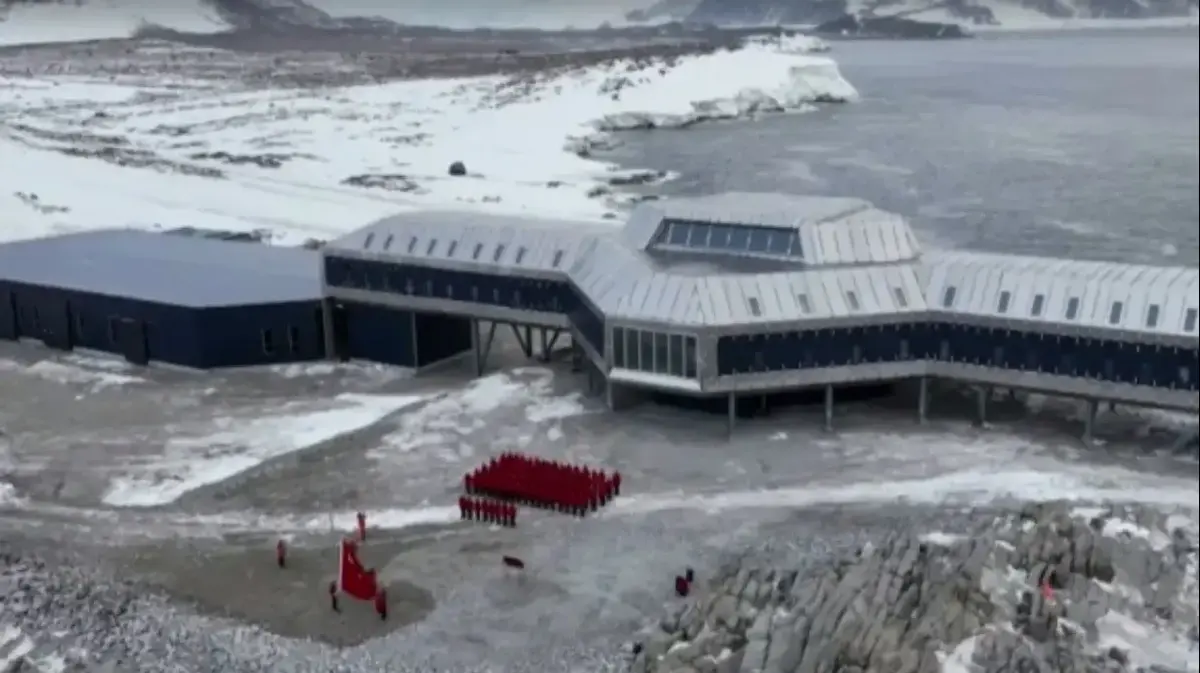China's new security deal with South Seas nation is stoking fears in Australia and New Zealand
Created: 04/13/2022, 04:49 am
By: Sven Hauberg
Xi Jinping visiting the destroyer "Xining" in April 2019: Xi is not only the Chinese head of state and party leader, but also chairman of the country's Central Military Commission.
© Li Gang/Xinhua/Imago
China and the Solomon Islands have launched a security agreement.
Nothing to worry about, says Beijing.
In Australia you see it differently.
Munich/Honiara/Beijing – The Solomon Islands almost never make global headlines.
The island nation, which is far away from world events in the South Seas, is also rarely at the center of international security debates.
But since the 650,000-inhabitant state launched a security agreement with China* a few days ago, there have been concerns about the path that the small nation will take.
In the USA, but above all in Australia and New Zealand, one takes a very close look at what Beijing and the Solomon Islands' capital Honiara are planning.
Is a new alliance emerging that could pose a threat to Western dominance in the Indo-Pacific?
And could China even build a military base on Australia's doorstep?
The foreign ministers of China and the Solomon Islands still have to sign the agreement, which is hardly more than a formality.
The exact text of the agreement is not known, but a draft was recently made public.
China, it says, "may visit the islands by ship, receive logistical supplies and make stopovers there, as needed and with the consent of the Solomon Islands."
Chinese armed forces are authorized to protect "the safety of Chinese personnel" and "important projects in the Solomon Islands," it said.
Yes and?, it sounds from Beijing* and Honiara.
"China and the Solomon Islands carry out normal law enforcement and security cooperation on the basis of equality and mutual benefit, which serves the interests of both countries and other countries in the region," China's foreign ministry spokesman Wang Wenbin said two weeks ago.
And anyway: One should “consider the matter objectively and rationally and not read too much into it”.
China: rapprochement with the Solomon Islands since 2019
Something similar was reported from Honiara*.
Manasseh Sogavare, Prime Minister of the Solomon Islands, described international criticism of the agreement as "very insulting".
After all, his country is able to "manage its own sovereign affairs," Sogavare said, according to Australian media reports.
There are also no plans to set up a Chinese military base in the Solomon Islands;
Sogavare described such reports as "misinformation".
"It's clear that we need to diversify the country's relations with other partners, and what's wrong with that?"
In Australia and New Zealand, on the other hand, there is a feeling that Honiara is making a mistake.
Australia's Prime Minister Scott Morrison said after the draft agreement was announced that he was not surprised.
However, the agreement is a "worrying problem" and reminds "of the constant pressure and threats that exist in our region to our own national security".
New Zealand Prime Minister Jacinda Ardern was also "very concerned": "We see such actions as a potential militarization of the region and also see little reason for such a need and such a presence with regard to security in the Pacific," she told the radio station NZ.
The Solomon Islands and China only got closer in 2019 after the government in Honiara unilaterally ended diplomatic relations with Taiwan*.
China regards the democratically governed Taiwan as a renegade province and is threatening military conquest.
However, the diplomatic turnaround was controversial among the population of the Solomon Islands.
As a result, serious riots broke out in November 2021, which could only be ended when Australia, New Zealand, Fiji and Papua New Guinea intervened.
China: Tangible interests in the Indo-Pacific
Of course, it is not the small Solomon Islands themselves that are making Canberra and Wellington weak at the moment.
Rather, people fear Beijing's expansion in the Indo-Pacific* – the sea region that stretches from the east coast of Africa through India, southern China and Australia to Hawaii.
"China is engaged in a grand and rapid buildup of maritime power such as we have not seen in generations," US military expert Thomas Shugart wrote in a contribution to the Australian think tank Lowy Institute last year.
"Given the scope, scale, and specific capabilities being developed, this build-out appears designed to first threaten the United States with withdrawal from the western Pacific -- and then gain dominance in the Indo-Pacific."
It's no secret that China has tangible interests in the Indo-Pacific*.
In the South China Sea, practically on its own doorstep, Beijing is concerned with territorial claims, the development of raw materials and securing seafaring.
About a quarter of the goods traded worldwide are transported through the Strait of Malacca, a strait between the Malay Peninsula and the north-east coast of Sumatra.
Oil tankers passing through the Strait also contribute to China's energy supply.
In 2003, China's former head of state and party leader Hu Jintao spoke of the "Malacca dilemma" that was making his country vulnerable.
Before China's economy opened up to the outside world in the late 1970s, "such a dilemma didn't exist," according to analyst Shugart.
But now the export nation China is almost forced to act – thanks to its own development.
The same applies to the Indian Ocean, where some of the world's most important trade routes also pass, and oil tankers travel from the Gulf States towards China.
China: More and more bases in the South China Sea
And China has long been creating facts.
In the Indian Ocean, Beijing-operated or controlled ports line the coasts of Myanmar, Sri Lanka and Pakistan like a string of pearls.
In early April, a mixed rail and truck route began operating between China's Chongqing and Rangoon in Myanmar -- China's first direct connection to the Indian Ocean, according to Chinese state media.
India viewed this development with suspicion*.
In the South China Sea, China claims an area that reaches far into the borders of the riparian states.
For years, China has been building artificial islands and building military bases within the "nine-dash line" marked by China, which encloses around 90 percent of the South China Sea.
A few weeks ago, US Admiral John C. Aquilino told the AP news agency that China had fully militarized at least three of these islands in the area and armed them with anti-ship and anti-aircraft missile systems, laser and jamming equipment, and fighter jets.
"I think that in the last 20 years we have seen the largest military build-up by the People's Republic of China since World War II," Aquilino said.
"They have all advanced their capabilities and this upgrade is destabilizing for the region."
The military expert Shugart does not see the danger of a direct Chinese attack for Australia.
However, Beijing could exercise coercion "over the country's economy, livelihood and even territorial integrity."
China is ready to impose its will on Australia and other nations in the region through economic pressure.
That Beijing is indeed not afraid to use its economic power as a bargaining chip was shown in early 2020. After Canberra called for an independent investigation into the origins of the corona pandemic - which started in China - Beijing imposed sanctions on Australia.
Since then, there has been a diplomatic ice age between the two countries, which was exacerbated by the arrest of an Australian journalist* in China.
China: The US is responding with its Indo-Pacific strategy
The US is reacting to the situation in the Indo-Pacific by creating several strategic alliances: with Australia and Great Britain (“AUKUS”, since 2021) and with Australia, Japan* and India (“Quad”, since 2017).
Finally, in February of this year, the Biden administration released its Indo-Pacific strategy.
According to the analyst Garima Mohan from the US think tank German Marshal Fund, the almost 20-page document confirms what was already apparent in Joe Biden*'s first year in office: "a clear shift in focus to the region and a push to strengthen the collective Capabilities of American Partners and Allies there”.
According to the paper, the fact that the United States is increasingly turning to the Indo-Pacific region is also due to Chinese ambitions.
"The PRC is combining its economic, diplomatic, military and technological might to create a sphere of influence in the Indo-Pacific region and become the most influential power in the world," write Biden's foreign policy strategists.
China is pressuring Australia and Taiwan, harassing its neighbors in the South China Sea and fomenting conflict with India.
The fact that people in the region are no longer only looking in the direction of Washington is shown not only by the Solomon Islands' rapprochement with Beijing.
Ironically, the Ukraine war* is currently revealing the new balance of power in the region.
While the USA is ensnaring the ten Southeast Asian states organized in ASEAN in its Indo-Pacific strategy, they are showing their own ideas: the ASEAN states of Brunei, Laos and Vietnam recently voted against the USA in the UN General Assembly for a resolution that would condemned Russia's actions in Ukraine.
Rather, they abstained* - as did China.
Thailand, on the other hand, emphasizes its neutrality, Indonesia speaks out against sanctions against Russia - and would rather buy cheap oil from the Kremlin than join the United States.
(sh)
*
Merkur.de
is an offer from IPPEN.MEDIA.












